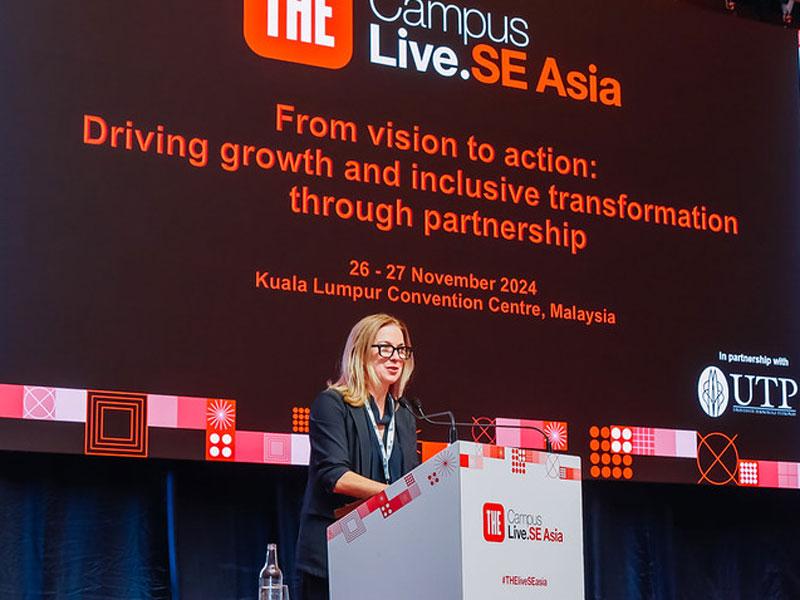Universities are reimagining their role in equipping students for a rapidly evolving future. While AI literacy is becoming an essential component of what is taught, institutions are also navigating how they build human-centred skills. According to Coursera’s latest Global Skills Report, there has been a huge surge in enrolments for generative AI courses since 2023. Speaking at a round table at the 2024 THE Campus Live SE Asia event, Jasmine Seah, customer success manager for APAC at Coursera, explained that, despite the momentum around AI, universities are still working out where the goalposts are.
“Digital skills meant something different 10 years ago. Since 2022, things have changed. Before ChatGPT, we talked about collaboration as a skill but now we’re looking at how we use generative AI as part of collaborative thought patterns,” Seah said. David FitzPatrick, pro vice-chancellor of the University of Nottingham and provost and CEO of the university’s campus in Malaysia, echoed this point: “One of the challenges for universities is that education is no longer our only domain. We have to think about employment. Our goal for students used to be intellectually maximising them and that isn’t the case anymore.”
Abhishek Bhati, pro vice-chancellor and CEO at the Newcastle Australia Institute of Higher Education in Singapore, pointed out that Singapore’s national government has specific policies for reskilling citizens and is funding people to leave employment and follow university courses for up to three years. “This is how the paradigm of employability is changing,” Bhati said. “Their view is that you need a full stack of training and skills.”
Carole-Anne Upton, deputy vice-chancellor of James Cook University in Singapore, said focusing too much on upskilling people for an AI revolution poses a risk of subjects such as the arts and humanities being ignored. “AI will be able to do a lot of the transactional stuff, so there will be a need for humans to be creative, to collaborate and think differently,” Upton said. “But we should stop seeing AI as a threat to education.”
Jason Pandya-Wood, dean of the Faculty of Arts and Social Sciences at the University of Nottingham Malaysia, said that labelling certain characteristic attributes as “soft skills” may create the perception that they are a nice to have rather than essential. “As we include learning about AI across the curriculum, we also need to think about how we build core human skills. If we rely on AI to provide answers and assume they are correct, we are in danger of not having space to have a proper conversation. Arts and humanities can help bridge that gap.”
When talking about building AI skills, it is important to consider that access to technology differs among countries. Ching Mei Lim, regional director of partnerships for South-east Asia at Durham University, described the different ways that institutions in the Asia-Pacific region are looking at AI. In some regions, the discussion is about course building and microcredentials, while others are only beginning to consider how they can use AI for teaching and learning, she explained.
Find out more about the 2024 Global Skills Report by Coursera.


comment